The United States of America is, once again, not managing its relations with India well. Gains made during George W. Bush’s presidency in building strategic trust between the two countries are being steadily frittered away by wrong steps taken by the Obama Administration, which seems to have taken its eyes off the India ball. Blame for this is being laid at India’s door, with the argument that India has not lived up to American expectations, that we have been sitting on the fence, unwilling to grasp firmly the hand extended by the US because of our non-aligned obsessions resurfacing as “strategic autonomy”.
Such talk assumes that India has to meet certain benchmarks set by the US in order to be a valuable partner — that is, to earn favour by behaving according to the US script. In this equation, the US is not required to live up to India’s expectations. In reality, if the two countries have to build a meaningful strategic partnership, it cannot be a one-sided affair, with one side under pressure to give and the other expecting to take.
Indian and American critics of India’s lack of strategic initiative believe that the US’s role in lifting nuclear sanctions on India obliges us to continually offer rewards to the Americans in our defence and nuclear sectors, carry out economic reforms in accordance with US wishes and priorities, and make our foreign and security policies increasingly congruent with those of the US. Such thinking misses the important point that, apart from extracting major Indian concessions with regard to India’s nuclear autonomy, the larger US objective was to win India to its side in the face of the new strategic challenges facing US power in Asia with the rise of China, the need for burden-sharing in upholding the post-1945 international system because of the depletion of its military and economic strength caused by wars and financial mismanagement.
Has the US, as part of an equitable strategic bargain, adjusted its options in dealing with issues that are sensitive for India? It has not entirely given up balancing its relationships with India and Pakistan, even though India does not support ideologies and actors that oppose US values and interests and take the lives of its citizens. The US continues to provide military support to Pakistan. It is reaching out to the Taliban with the assistance of the Pakistani military, whose only instrument of political influence in Afghanistan is the former. Legitimizing the Taliban’s political role in Afghanistan, even as the Pakistani Taliban are threatening Pakistan’s internal peace, is to leave behind acute problems for India, already the victim of jihadi terrorism.
A positive feature of India-US ties in recent years is the better alignment of their policies towards South Asian countries (barring Pakistan). However, the US, in furtherance of its democracy and human rights agenda, has lately taken a divergent course. Any strategic partnership has to show particular sensitivity to the regional interests of partner countries. The US has targeted Sri Lanka in the United Nations Human Rights Council at Geneva, leaving India little choice but to go along as the US initiative opened the doors to pressures by regional lobbies within India on the Central government to support international moves to condemn Sri Lanka.
More recently, the US criticism of the election process in Bangladesh — which gives comfort to Begum Khaleda Zia and her extremist allies and undermines politically the secular-minded Sheikh Hasina — is not in tune with India’s interests. That the US should be politically protective of forces in Bangladesh that are unfriendly towards India betrays a failure of strategic understanding on developments in Bangladesh that are in the interest of the region. The US has, surprisingly, lauded Begum Zia and her Jamaat allies in the past as representing “moderate Islam”. Now that Sheikh Hasina is seeking to exorcise Islamist elements and build a truly moderate polity in the country, the US is disapproving of her politics, faulty though it may be in some respects.
The US ignores China’s strategic links with Pakistan, including their nuclear cooperation, even as it expects India to be the lynchpin of its re-balancing towards Asia. This essentially means that the western Pacific region, where American power is being challenged by China. We have come under enormous pressure from the US to dilute our already limited relationship with Iran in a bid to further isolate that country, disregarding our genuine strategic interests in that country, both in terms of long-term energy security and transit routes to Afghanistan and Central Asia.
Another instance of the US assaulting India’s dignity, without control mechanisms being triggered from the top, has been the Devyani Khobragade case. The US is unwilling to bring a closure to this issue even now, despite the huge set-back administered to bilateral ties. On the economic side, from a political position that the several India-US economic dialogues were strategic in nature as building Indian capacities in various fields was intended, we have now the US corporate lobby targeting India on patents and compulsory licensing issues related to Intellectual Property Rights as well as those of market access. The US Chamber of Commerce is demanding that the US trade representative classify India as a “priority foreign country”, a status reserved for the worst IPR offenders, which can lead potentially to trade sanctions. The US International Trade Commission is undertaking a year-long investigation into the effect on the US economy and IPR protection of India’s trade, investment and industrial policies — an unjustifiable case of arm-twisting from the Indian point of view, given that Indian decisions are compliant with the agreement on trade-related aspects of IPR, and the US remains unresponsive to many Indian complaints on trade and services issues. On patent and compulsory licensing, the US that swears by due process is questioning the legitimacy of our Supreme Court’s judgments.
The treatment of Narendra Modi by the US also shows the ineptitude of American diplomacy on a domestic Indian political issue it could have stayed away from. Rather than dealing pragmatically with the visa issue, the US has taken a doggedly ideological position; even intensive investigative and legal processes have failed to incriminate Modi. The belated good sense shown by the Europeans in ending their ostracism of Modi has been emulated by the Americans with diplomatic clumsiness. Even as the US Ambassador to India met Modi, the state department announced that there was no change in the US position on the visa question. The statement from the US embassy, that the Ambassador also discussed human-rights issues with Modi, was intended to signal that this subject continues to weigh with the US while dealing with Modi — an unnecessary befuddlement if the idea is to make up with him. It seems that the US wants to hedge its bets on Modi, making the gesture of reaching out to him in case he might win, but keeping the visa-denial issue alive in case he loses. This is hardly serious diplomacy.
If the US had judged the importance of India in its strategic calculus during Bush Junior’s presidency, and if President Obama’s rhetoric about the relationship with India being a defining one for the 21st century was meant, then the current inattention towards India shows the strategic fitfulness of the Americans, who emphasize quick gains over patience in obtaining returns from a key investment in a longer-term perspective.
Published Date: 7th March 2014, Image source: http://news.legalindia.in

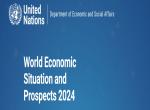
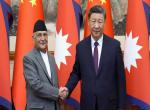



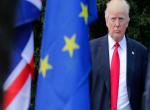
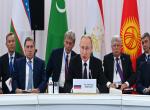
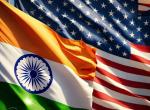
Post new comment